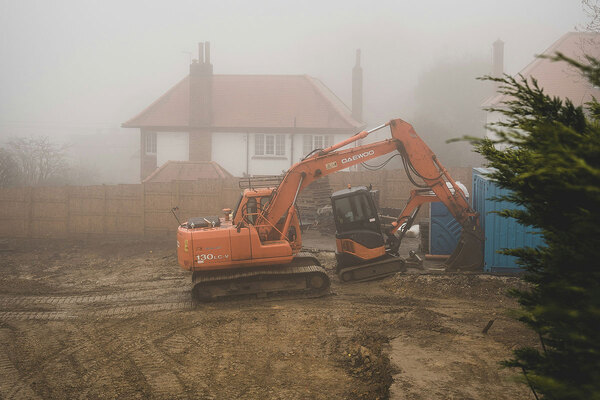You are viewing 1 of your 1 free articles
Ombudsman reprimands nine landlords for poor complaint-handling ahead of statutory deadline
The Housing Ombudsman has written to nine landlords about their repeated poor complaint-handling ahead of the code becoming statutory next month.

The letters were sent as part of the watchdog’s latest report on complaint-handling failure orders (CHFO).
However, the ombudsman has found a “significant reduction” in the number of CHFOs issued in the last quarter compared with the previous one.
A total of 25 landlords that had an order in the last period did not receive one this time.
From October to December 2023, a total of 24 CHFOs were issued, of which 10 were complied with, and 17 of the orders issued this quarter were “unreasonable delays in accepting or progressing a complaint”.
An additional seven were either “unreasonable delays in providing the ombudsman information” or “evidence of compliance not provided by the landlord”.
A key lesson from the latest round of failures was ensuring a complaint policy clearly sets out why a complaint will not be accepted and ensuring this decision is communicated to residents in writing, with a detailed explanation of their rights.
Another repeated failure was extending deadlines without communicating to residents effectively. This also included giving reasons for the extension or setting and then meeting new deadlines.
One of the landlord’s named in the report was Metropolitan Thames Valley Housing (MTVH). The association had two CHFOs not complied with this quarter, which were issued for lack of evidence in compliance with orders and a lack of response to the ombudsman.
A spokesperson for MTVH said: “We have accepted these orders and taken steps to help to improve our processes in the future, working directly with the ombudsman’s team.”
The other landlords that did not comply with the ombudsman’s orders were: Adullam Homes, Barking and Dagenham Council, Ealing Council, Lambeth Council, Lewisham Council, Luton Community Housing, Sandwell Council and Westminster City Council.
For its part, Barking and Dagenham Council issued an apology and promised to “address the concerns raised by the ombudsman in a transparent manner”.
It added: “Throughout the investigation process, officers maintained consistent communication with the resident involved.
“However, it became apparent that certain issues needed to be carefully considered under latent defect, resulting in an extended timeframe for addressing the complaint. We recognise that this prolonged response time was not ideal, particularly in matters concerning repairs for an individual in need.
“We are committed to learning from our experiences and continuously improving the services we provide to our residents.”
A spokesperson for Ealing Council said: “The council has recently updated its complaints handling process in an effort to ensure residents receive prompt responses and have their complaints dealt with properly.
“When complaints received during this transitional period were reviewed in October 2023, this one was highlighted as requiring action and was actioned immediately at that point.
“This was an unreasonable delay in our complaints process during this transitional period.”
All of the landlords named were offered a chance to respond to the latest report.
The ombudsman’s updated Complaint Handling Code becomes statutory on 1 April 2024. It said that while there are “minimal changes” for landlords that are already compliant, it urged all landlords to review the code and ensure self-assessments are submitted on time.
Richard Blakeway, the housing ombudsman, said most of these orders were made while the complaint is live in the landlord’s procedure, “revealing issues that occurred in the last three months”.
“We only issue a handful [of CHFOs] compared to the thousands of cases we handle and after much intervention with the landlord,” he said.
“These orders help landlords to identify where action is necessary to improve complaint-handling, and with most landlords this appears to be successful. Ultimately, this helps complaints to be resolved earlier by the landlord itself, which is essential given the continued rise in complaints.”
Mr Blakeway added: “It is vital landlords assess their complaints procedure as the code becomes statutory. This also means ensuring its complaints team has the resources and leverage within the landlord to do its job and to ensure there is fairness for residents when making a complaint.”
This last quarter also saw the watchdog engage with 27 landlords to ensure their complaint policy was compliant.










